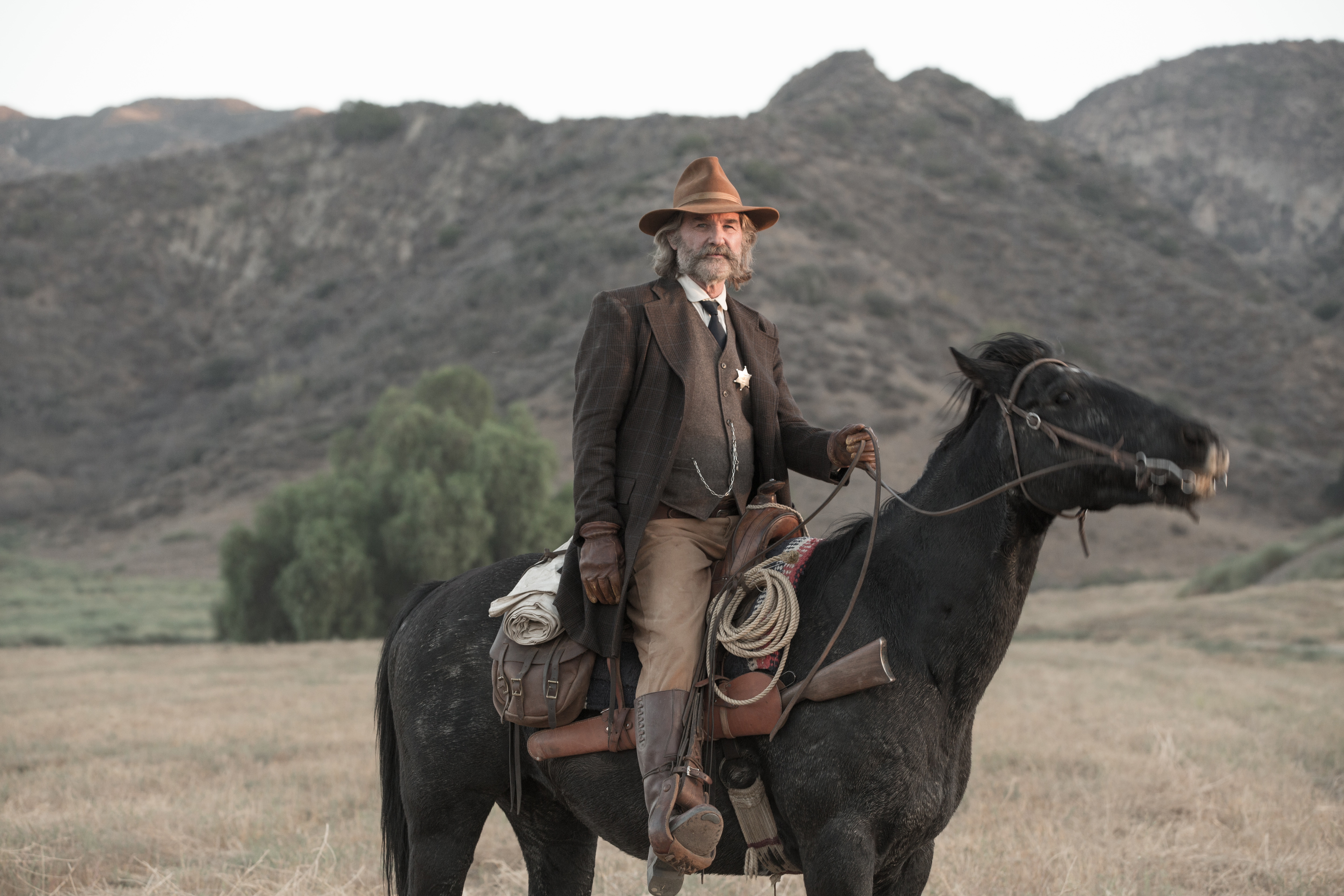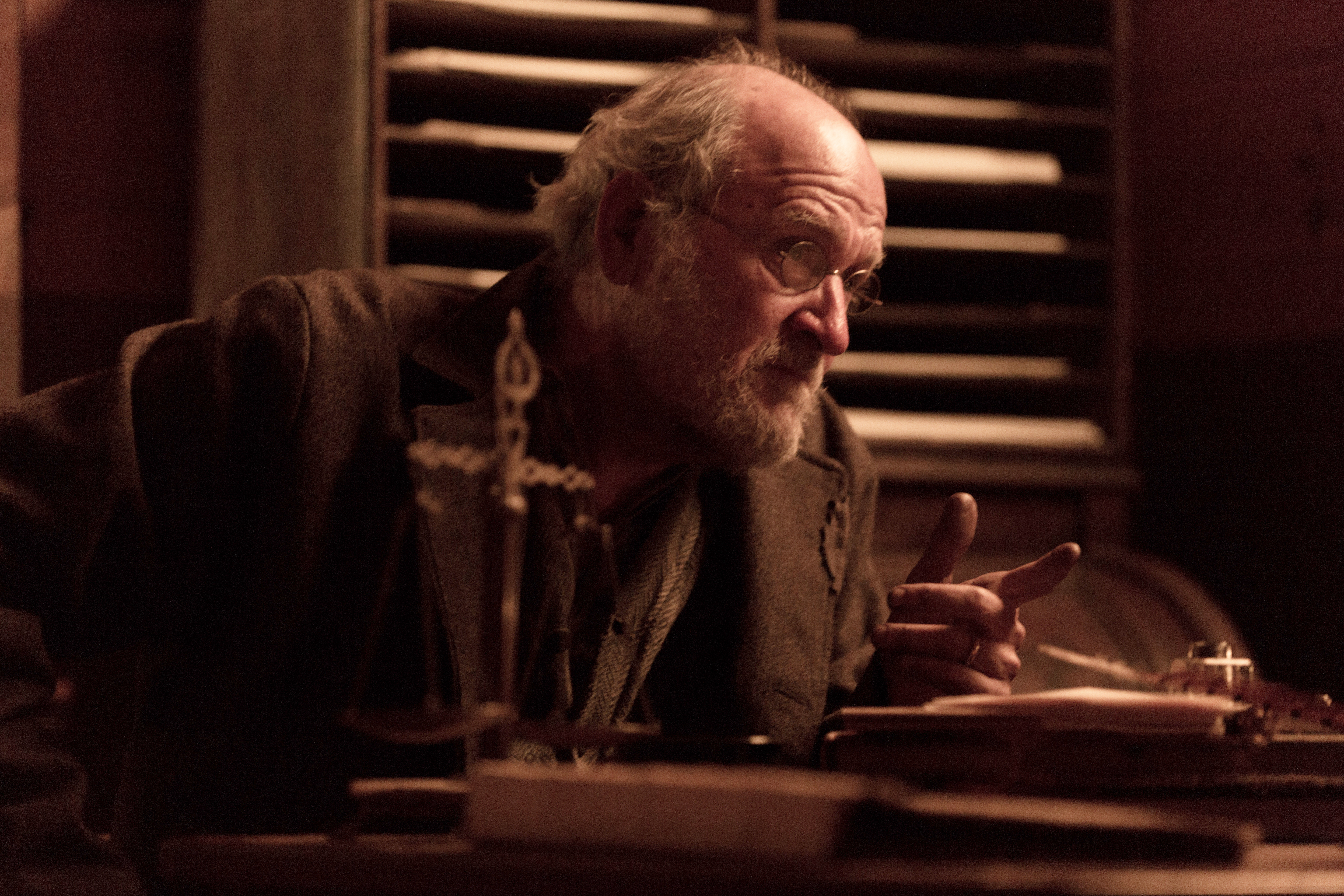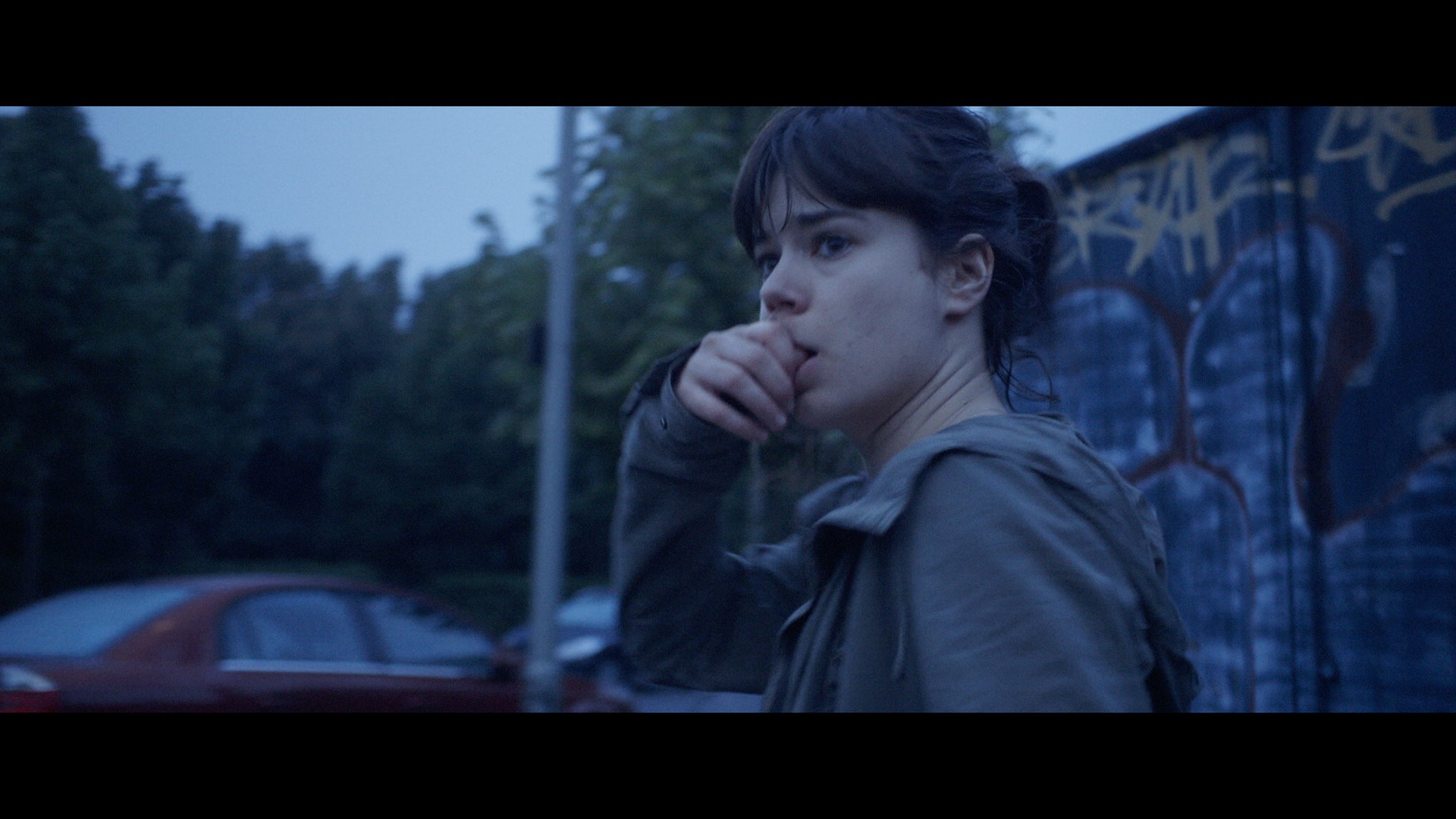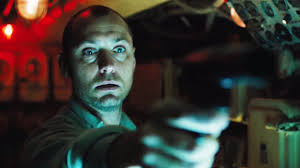Maïwenn’s MON ROI Good Love Gone Bad
 Sunday, August 21, 2016 at 01:33PM
Sunday, August 21, 2016 at 01:33PM 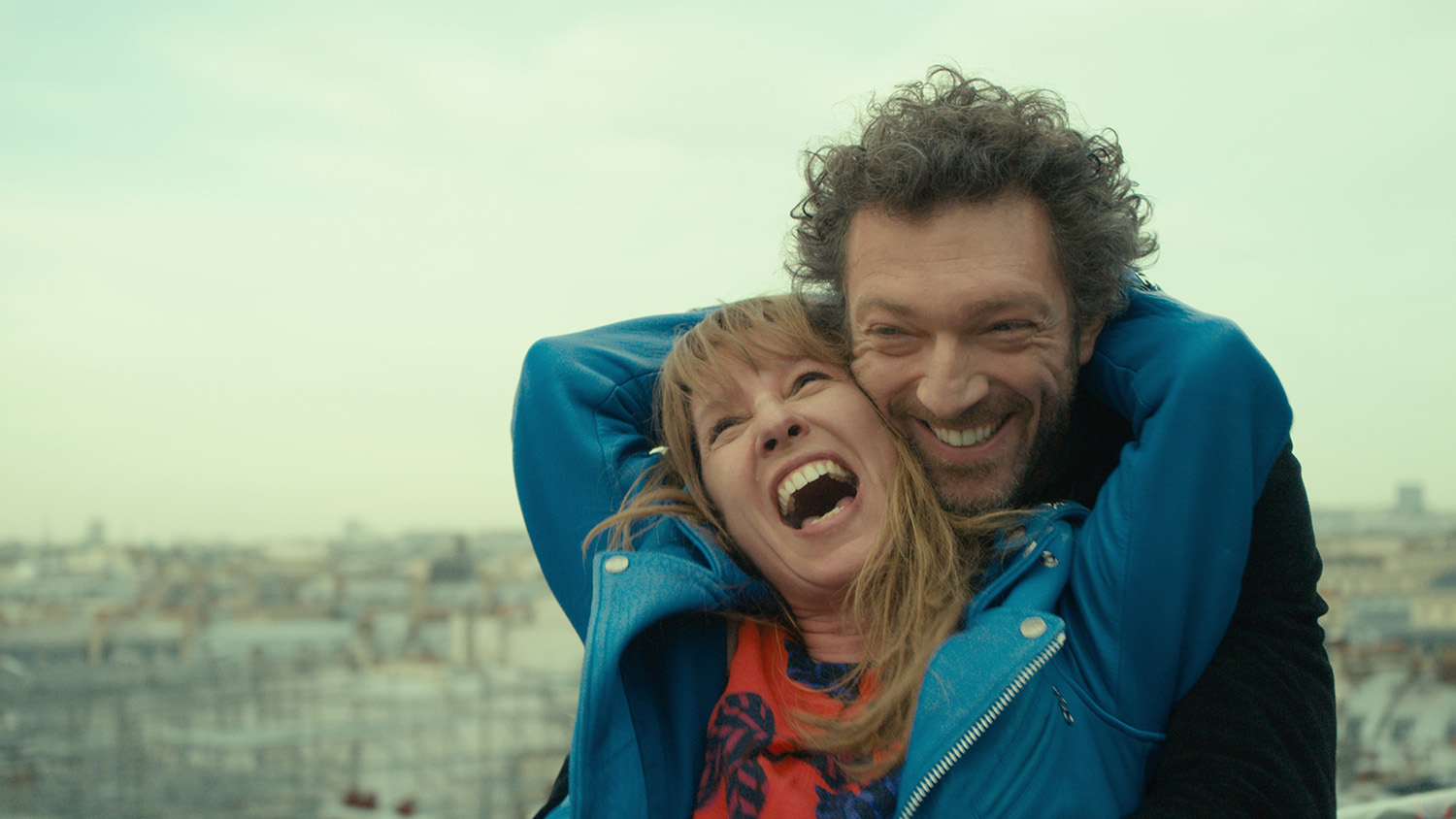 Emmanuelle Bercot and Vincent Cassel courtesy Film Movement
Emmanuelle Bercot and Vincent Cassel courtesy Film Movement
Vincent Cassel – Georgio – is stylish, cool, unknowable. You know, he’s Vincent Cassel ! Georgio falls for Emmanuelle Bercot – Tony – a shrewd, slightly nerdy barrister. She can’t believe it, but he sweeps her off her feet. Mon Roi – a harrowing, adult masterpiece – tracks their relationship over the years and raises unanswerable questions. Is Georgio a strong-willed, self-directed dude who does things his way and ignores his wife's priorities? Or is he a charismatic sociopath, a lying narcissist and a gaslighting psycho? Is Tony confused, emotionally abused or too bourgeois and inflexible to handle the love of the man who inspires her deepest emotions? Most unanswerable of all: Are any of these options mutually exclusive?
These questions fuel the most insightful, moving and convincing relationship film since Scenes of A Marriage. But Bergman’s Scandinavian Lutheran rationalism could never embrace the self-contradictory, chthonic truth of sustained relationships: that love and loathing combine and intertwine, daily. And that people operate against their own interests all the time, often for a perverse pleasure they can’t even identify. Writer/director Maïwenn presents that intertwining and perversity as the baseline of any great passion.
In Polisse*, Maïwenn’s second film, you can feel her discovering what will be her greatest strengths in Mon Roi. She loves intercutting between interlocking stories. Her naturalist, almost documentary, camera is a heat-seeking missile. She cuts to close-ups only for greatest impact, and holds the most wrenching scenes in extended medium shots. Her strongest visual influence seems to be French director Olivier Assayas (Something in the Air, Carlos, Irma Vep). But he’s only an influence. Maïwenn’s instinctive and original.
She shares Cimino and Copolla's genius for creating credible, lived-in group dynamics among either blood- or work-families. She inspires astonishing, sustained performances that build and develop complexity. She understands – to a degree matched only by English writer/director Joanna Hogg (Unrelated; Archipelago; Exhibition)** – how intimacy ebbs and flows over years or in a heartbeat. Maïwenn captures fleeting but cataclysmic facial expressions and gestures – tiny domestic moments – on which marriages founder or endure. Maïwenn’s cinematic intelligence is on par with her emotional intelligence. Her emotional intelligence is profound. And fearless.
Maybe Maïwenn’s greatest gift as a writer/director is primality – a direct presentation of gut emotions. Her men and women feel before they think. Tony tries to parse her feelings by thinking. It don’t work. Georgio barely thinks; his feelings run him. Their opposite approaches frustrate and bind them in equal measure.
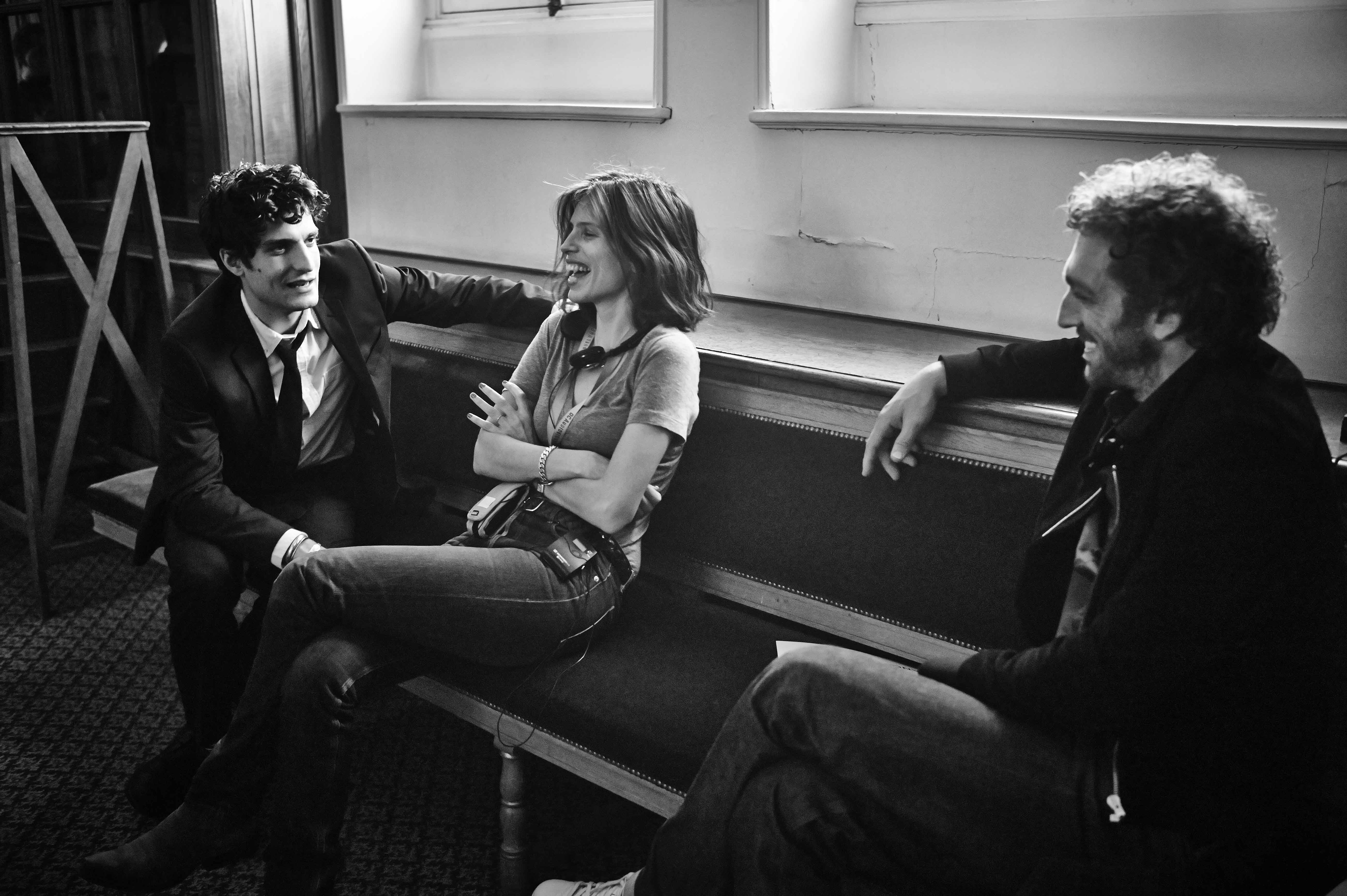 Director Maïwenn, Patrick Raynal and Vincent Cassel courtesy Film Movement
Director Maïwenn, Patrick Raynal and Vincent Cassel courtesy Film Movement
Maïwenn intercuts between Tony as a resident in a physical therapy center – she blew out her knee skiing – and memories of her years with Georgio. At certain points the intercutting and Tony’s systematic healing work a little too hard. We get it: Tony’s rehabbing her knee as she rehabs herself. She revels in pal-time with some young bros getting PT. Being free of Georgio means being free of desire. That freedom is a blessed relief.
Georgio’s moneyed, heedless, capable of great kindness and opaque. He bluffs and lies like Satan. Tony catches him naked in bed with a young model. Georgio not only denies having sex with her, he denies knowing her. And he’s damn convincing. Equally convincing is his volcanic rage when Tony won’t do what he wants. Georgio seesaws between amour fou and cold-hearted self-indulgence. He demands that his suicidal former lover come to live in the home he and Tony share.
Tony never colludes in Georgio’s shitty treatment of her. She’s not a victim, despite his – possibly unconscious – efforts to make her one. She’s smarter than he is and plenty tough. She stands up for herself throughout, even in the face of his terrifying rages. Problem is, Tony’s too damn sane to cope with Georgio’s mercurial, heartfelt follies. And he knows how to make her feel guilty even for refusing to go along with his most nutcase urges. Tony, like us, can’t tell whether Georgio’s deranged or playing her for all he’s worth. Tony finds no clarity, except in bed.
The atomic power of their sexual connection startles Tony and Georgio every time. Their love scenes are too raw and laden to be sex scenes. They’re too explicit and erotic to be love scenes. They’re fuck scenes: human, hot and credible. Nothing harder (no pun intended) to pull off (ditto) in literature or film. Yet, Maïwenn does. Tony and Georgio’s lust never abates, even when they despise each other. The explicit moments reflect and describe different stages of the relationship. Each scene also shows – without underlining or doubling down with dialogue – Georgio’s electrifying, judgment-frying sexual hold on Tony.
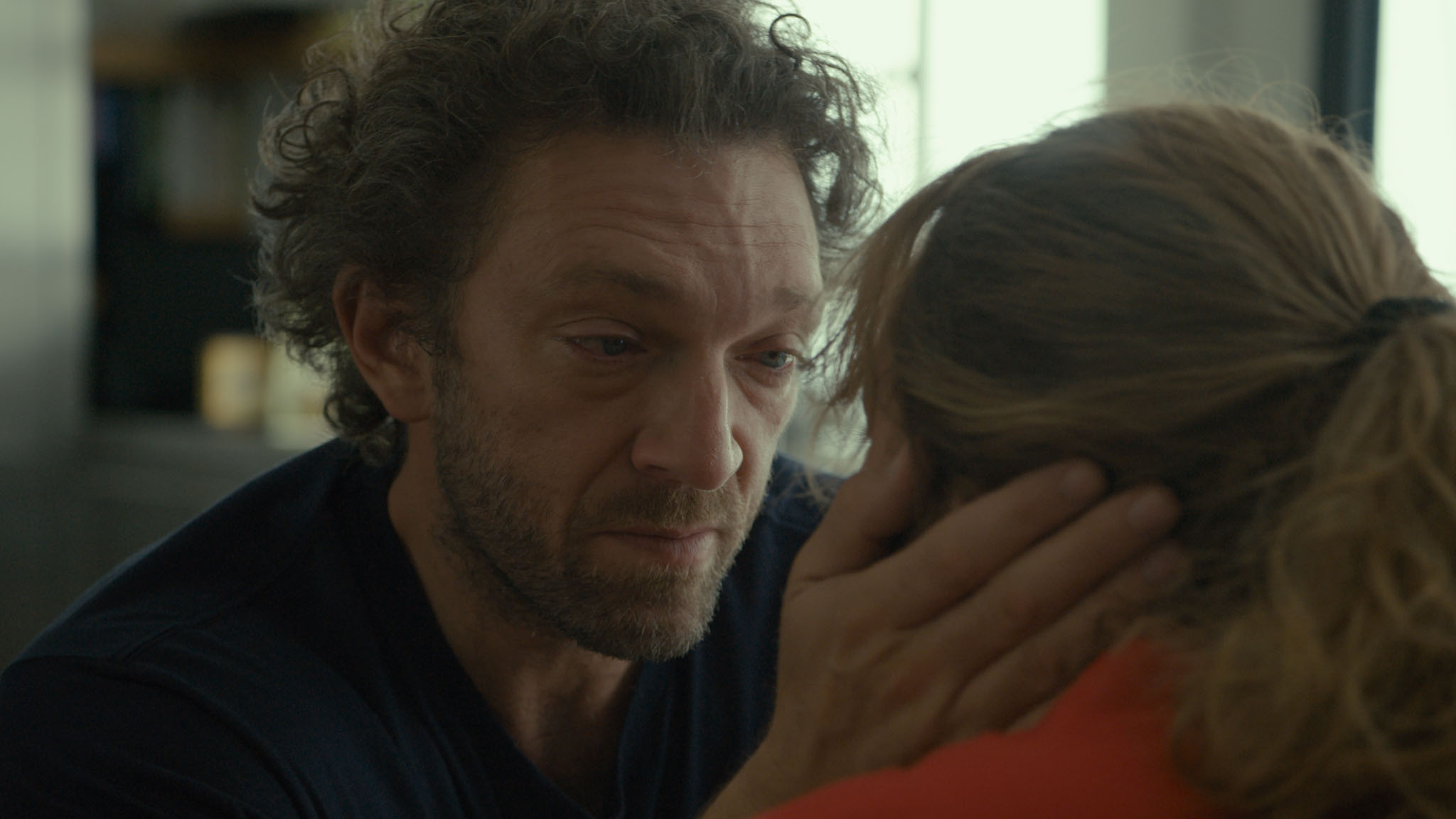 courtesy Film Movement
courtesy Film Movement
Those scenes may be graphic, but Tony’s luxurious state-run physical rehab center is the truly pornographic fantasy in Mon Roi. Live-in physical therapy, private rooms with TV, one-on-one PT instructors, pools, classes, generous meals, esoteric rehab gear and, most pornographically, a French babe shrink asking Toni in concerned tones why she thinks she fell while skiing! Can you imagine an American insurance provider funding a shrink to ask why you wrecked your ACL? That’s a proper application of taxpayer money! And a much more powerful lust-inducer than either of the stars for all their hot fucking.
In one amusing moment, Tony freaks out on Georgio for wanting to hang only with his “beautiful people.” Georgio, in some shady way, connects to the fashion world. His high-cheekboned crowd is a magazine shoot come to life. Tony thinks Georgio should spend more time with the real people, like her brother and sister-in-law. Maïwenn’s life in the beauty bubble – she’s a former model of dazzling, feral, charisma – may have warped her view of real people. Tony’s brother, though Maïwenn hides him under a series of moronic baseball caps, is Patrick Raynal, a brooding French Heathcliff. Maïwenn’s real-life sister – the ethereal, heart-stopping Islid Le Besco – plays Tony’s sister-in-law. In the silent era, Le Besco’s northern Renaissance face and angelic detachment would have made her an enormous star. Real people, these ain’t.
What makes Mon Roi extraordinary is Maïwenn’s evocation of both romantic partners as equally rich, complex, self-perplexing and compelling. The other characters are sketches, backdrops to the main event, but Tony and Georgio have the breadth of great literary characters and each carries equal weight. It’s something you seldom see and rewards multiple viewings.
In the final moments, after all the battles – all the coming together and blowing apart – Tony, despite herself, remains enthralled. Thrilled to be free, enthralled for life.
Maïwenn asks without taking sides: Is this the nature of love?
* Amazon streaming
**All on Netflix
 Joanna Hogg,
Joanna Hogg,  Maïwenn,
Maïwenn,  Olivier Assayas,
Olivier Assayas,  Polisse,
Polisse,  Vincent Cassel
Vincent Cassel 

